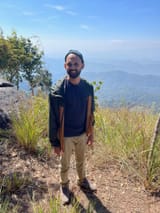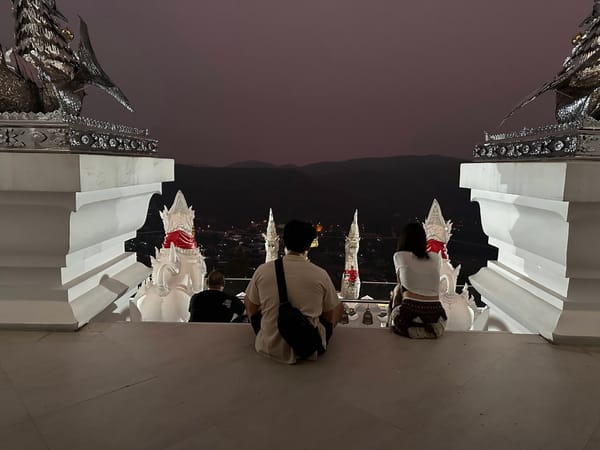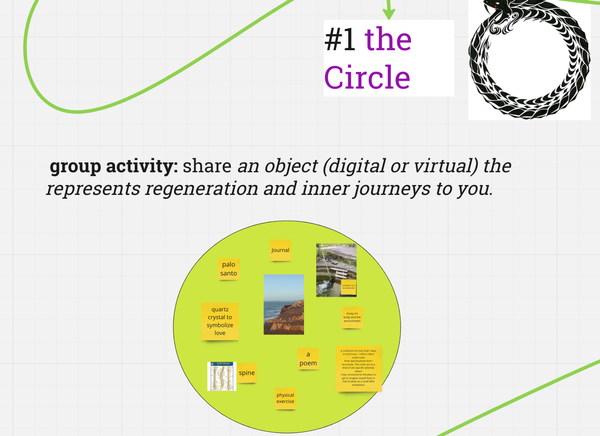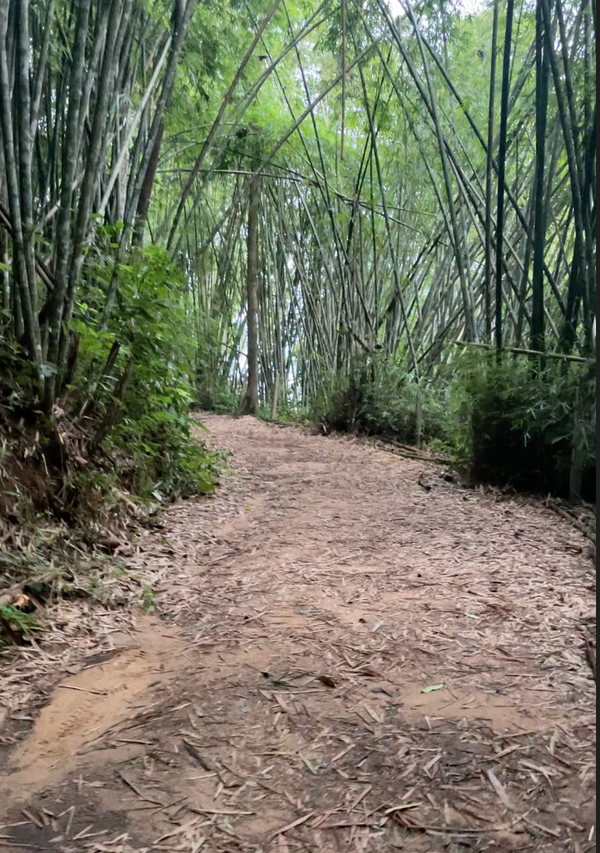☯️🤖 Living "intelligently" in an AI world: a Daoist Perspective
An exploration: What if the expanding capabilities of AI prompt us to live more intelligently? To tap into an inherent intelligence within us that fosters more fulfilling and joyful lives, and to guide a renewal in how we utilize technology on our planet
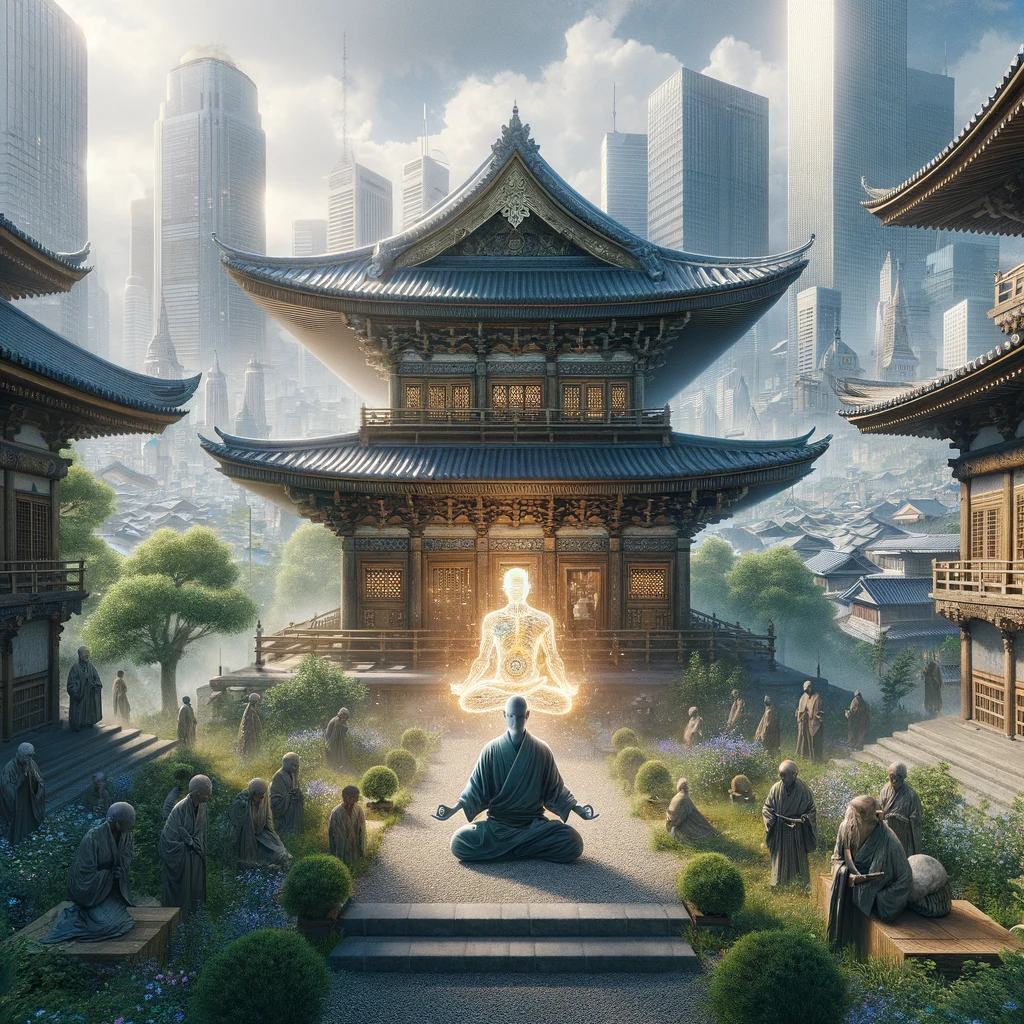
Generative AI model GPT-4 passed the US Bar exam in the 90th percentile. DeepMind AI now rivals the world’s smartest high schoolers at geometry. Anthrophic's Claude 3 became the first AI to pass a 100 IQ.
The accolades continue to roll in for our intelligent, Large Language Model (LLM)-based AI companions, as they outperform most humans on various standardised tests and examinations, coding and programing challenges, translation tests, etc. The rate of improvement is fast. A 2023 survey of leading AI researchers–those with the most intimate understanding of how this all works–reveals that expectations for AI systems to reach 'human-level performance' have significantly advanced, jumping several decades ahead compared to a 2022 survey. The trajectory of our world today suggests that vast resources (time, money, and environmental) will be spent to achieve this.
When the first wave of Machine Learning applications entered the mainstream around 2016, the ‘Future of Work’ was a popular theme at policy and media spaces–I was a part of some of them. In addition to impact on job markets and economies, deeper philosophical concerns around work and meaning also surfaced. Work occupies a majority of our time as an adult so much so that it informs our sense of purpose in this world. Anything that may alter this balance is certainly disruptive.
So, what does this mean for us, when AI out competes humans on many barometers and benchmarks we’ve created as a reference for intelligence, skills, and even identity over the past 100 years or so?
It’s natural, given the state of the world today, that many people feel fearful of being rendered less relevant in workplace or expect dystopian visions of an AI world.
🌳 A Light Forest provocation:
What if the expanding capabilities of AI prompt us to live more intelligently? To tap into an inherent intelligence within us that fosters more fulfilling and joyful lives, and to guide a regeneration of how we use technology in our planet.
Let's use this Daoist perspective on intelligence as our starting point for an exploration
According to Daoist Cosmology humans have access to two types of intelligence:
- Conscious Knowledge CK(意知 ) = everyday awareness of life, formed by training and experience. It involves intellectual study, reasoning, and conceptualization.
- Real Knowledge RK (真知) = non-discursive, immediate knowing, originally inherent in human beings and not the product of learning.
source: Translation of Understanding Reality (Wu Chen P’ien by Chang Po-tuan) in Volume 2 of Daoist Classics a collection of translations by Thomas Clearly. All the following references are also made from this seminal 10th century text.
Conscious Knowledge (CK) is the realm that our world primarily recognises as ‘intelligence’.
CK refers to any intelligence expressed through words or numbers, woven together with reason, logic, pattern recognition, etc. Artificial Intelligence, especially Generative AI chat bots like Chat GPT, falls within the pure CK spectrum too. These are are based on Large Language Models trained to ‘predict the next word’, requiring vast amounts of data and training (Chat GPT-3 was trained on a corpus of approximately 500 billion words). Even if we were to achieve the holy grail of so-called ‘General AI’, which Shane Legg founder of Deep Mind defines as “ a machine that can do the sorts of cognitive things that people can typically do, possibly more”, and the so-called Singularity-moment– an AI capable of autonomously improving itself without human intervention– are confined to the scope of CK. Human Being are not.
*I’ll leave a caveat here for a creation of some synthetic version of RK that becomes originally inherent in AI. There are some fascinating lenses to discuss creation and AI as a ‘being’ in its own right in the cosmos but that will have to be for another post. (Even so, I have to assume it will be different from the RK that humans have access to).
On the other hand, Real Knowledge (RK) is non-discursive i.e. not expressed in words, and not an outcome of obtained knowledge but an innate knowing originally inherent in humans. This sets it fundamentally apart from AI and is often missing from our own construct of intelligence. Yet, it's something many of us rely on for important things, often unconsiously.
Phrases like ‘trust your gut’ or ‘don’t over think it’ hint at an intelligence beyond the thinking mind. Many successful leaders often say something to the effect when describing management. Artists and creative people talk about a ‘flow state’ where creation takes places effortlessly without thinking. Listen to an athlete reflecting back on a moment of brilliance in a game and one common phenomenon they all describe - they stopped ‘thinking’.
This allows us to start to understand what is meant by non-discursive intelligence but is still a relatively surface level reading of RK which points to a space far deeper. A connection to a wider intelligence from which life itself is contained within. Explained in terms of Plato’s allegory of the cave, turning attention away from the shadows on the wall to the source of light itself.
According to Daoist teachings, conscious and real knowledge are interlinked, like complimentary opposites. To live a truly balanced life humans must acknowledge and merge together conscious and real knowledge. Some emphasis here: it does not demand giving up conscious knowledge or ignoring its role in our lives. Quite the contrary. It is simply pointing to opening up to find and strike a balance between both.
The fusion between real and conscious knowledge creates a 'stable human mind' that is as described by this 10th century text by Chang Po-tuan :
‘fully awake, autonomous, capable of exercising free will…rather than be a product of socio-cultural construct'.
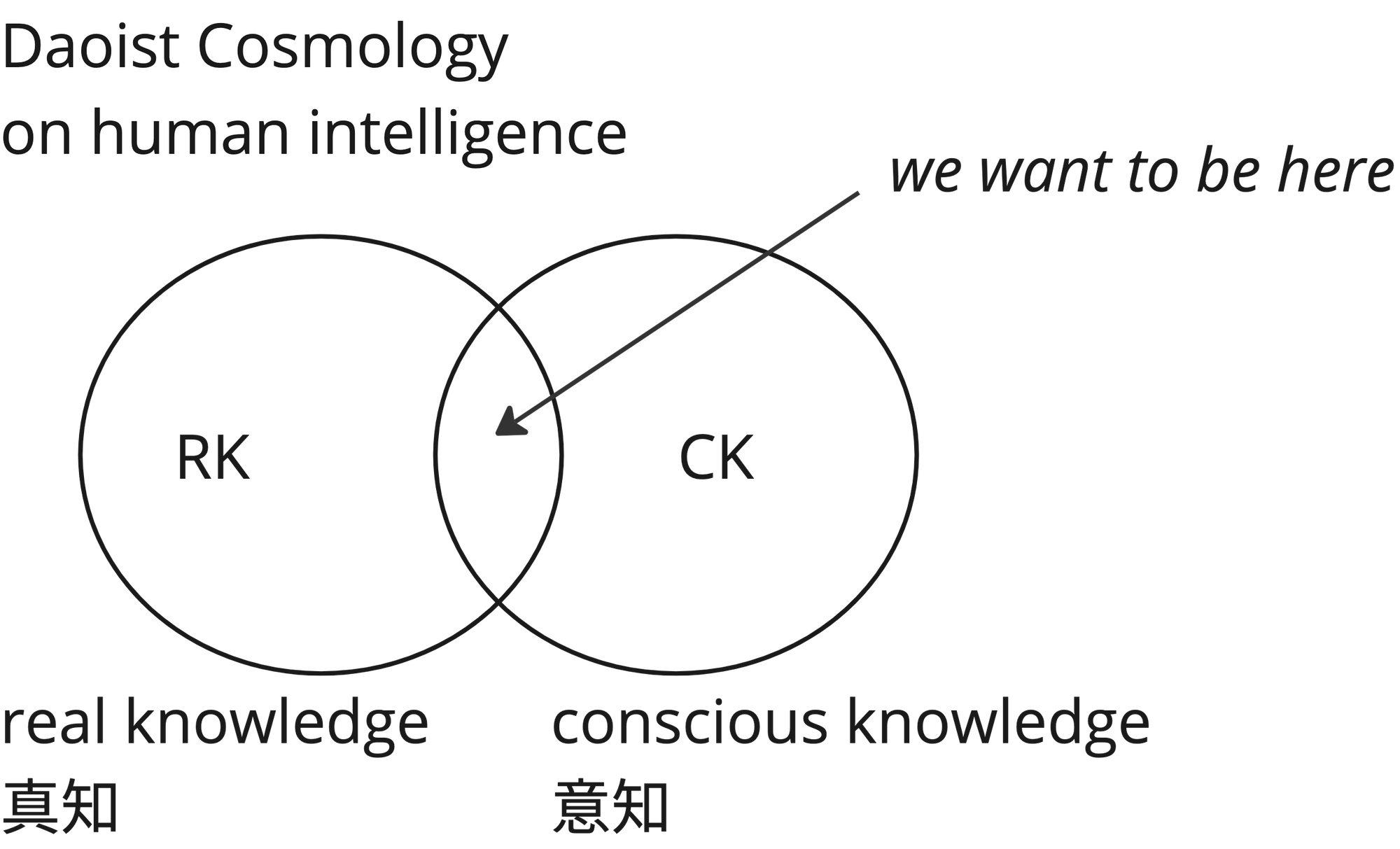
This gets to the heart of our challenge as Light Forest explorers, as we turn our attention to the many sources of strife in our lives and the many crises in the world around us.
We seek to reimagine a world in which our systems and institutions transition away from infinite extraction, consumption, and violence. Without cultivating RK we remain limited by conditioned habits, worldviews, beliefs, etc. which we have picked up over the course of our life. Living in the digital age we have to contend with our attention hijacked in ways that we still don't fully understand.
For most of us brought up in education systems of the 20th and early 21st century we’ve been trained to build our capabilities in CK, with a focus on Work. We were taught to place immense focus on mind-based analyses and ignore the wisdom of our bodies. It is natural that we feel fear when we see AI tools write texts, create images, produce complex tasks much better and faster than we could ever hope to because in a way they attack our sense of who we think we are and our purpose.
Learning how to work with AI, automating tasks and having time to bring more of your own creativity and cognition, will be a part of the process. Just as we did as computers or social media entered into our lives. Reading any number of reports on AI and the future of Work you’ll see sections devoted to emotional intelligence as the coveted skills in an AI world. All this is probably true. However the Daoist framework shows us that we are missing the full picture on what it means to live intelligently.
Honing our competitive advantage in the age of AI can be the starting point to a deeper exploration to better understand yourself and the interconnected nature of life. Through this exploration we may truly find and express ourselves in this world.
This is a source of intelligence that we already possess; it is not acquired. Tapping into it requires a recognition of its presence. We can talk about it and read about but ultimately it can only be experienced directly. Herein lies the challenge. Light Forest Protocols like Unlearning and Open Mind or Grounding in the Now refer to the ways we can start to cultivate this.
Our journey may uncover new ways of relating to Work and its role in your sense of self and the life you want to lead. In a world increasingly shaped by AI-generated media, our sense of what is "real" is being challenged, eroding trust in our own sensory experiences. Cultivating RK may open up our field of awareness that can help us find a deeper sense of balance and grounding amidst our everchanging, seemingly chaotic environment.
Gradually, as we start to live from this expanded space, our focus may shift towards how technology governance can be enlighted by the recognition of what Real Knowledge represents. Scholar Yuk Hui offers a philosophical approach he calls Cosmotechnics drawing upon Daoism and Confucianism.
This framework challenges the dominant western perspective of technoscience in which technology is used to to reshape or bend nature to human will or desire, or uses technology as a barometer of progress. In contrast, Chinese philosophical tradition, along with other Asian and indigenous traditions, sees humans not as separate from nature but deeply interwined within the cosmos, as one connected whole. Living in harmony with nature or maintaining a connection with the cosmos is not simply an ideas but a fundamental truth or ethical principle.
Understanding life in this way, technology is also not separate from humans. Its most powerful role could be to foster greater harmony between humans and the cosmos or nature.
The framework Yuk Hui offers is derived from the Confucian concept of Qi 器 (tool) and Daoist concept of the dao 道 (cosmos) as construct for understanding the development of technology in East Asian culture and a model where technology unites us with cosmos (道器合一) as opposed to our current reality where technology often distances us from the cosmos.
Living more "intelligently" combining Real Knowledge and Conscious knowledge, and using this framework may start to steer the technology's development in ways that promote more harmony and balance. Since AI mirrors human society and our values, an evolution in our perception of our own true nature, AI systems which learns from our data can evolve as well. Such a paradigm shift can help us deal with ethical questions around economic development and ecological degradation and so-called AI Alignment.
This scenario underscores the relationship between inner transformation and planetary regeneration, laying the roots for a Light Forest World.
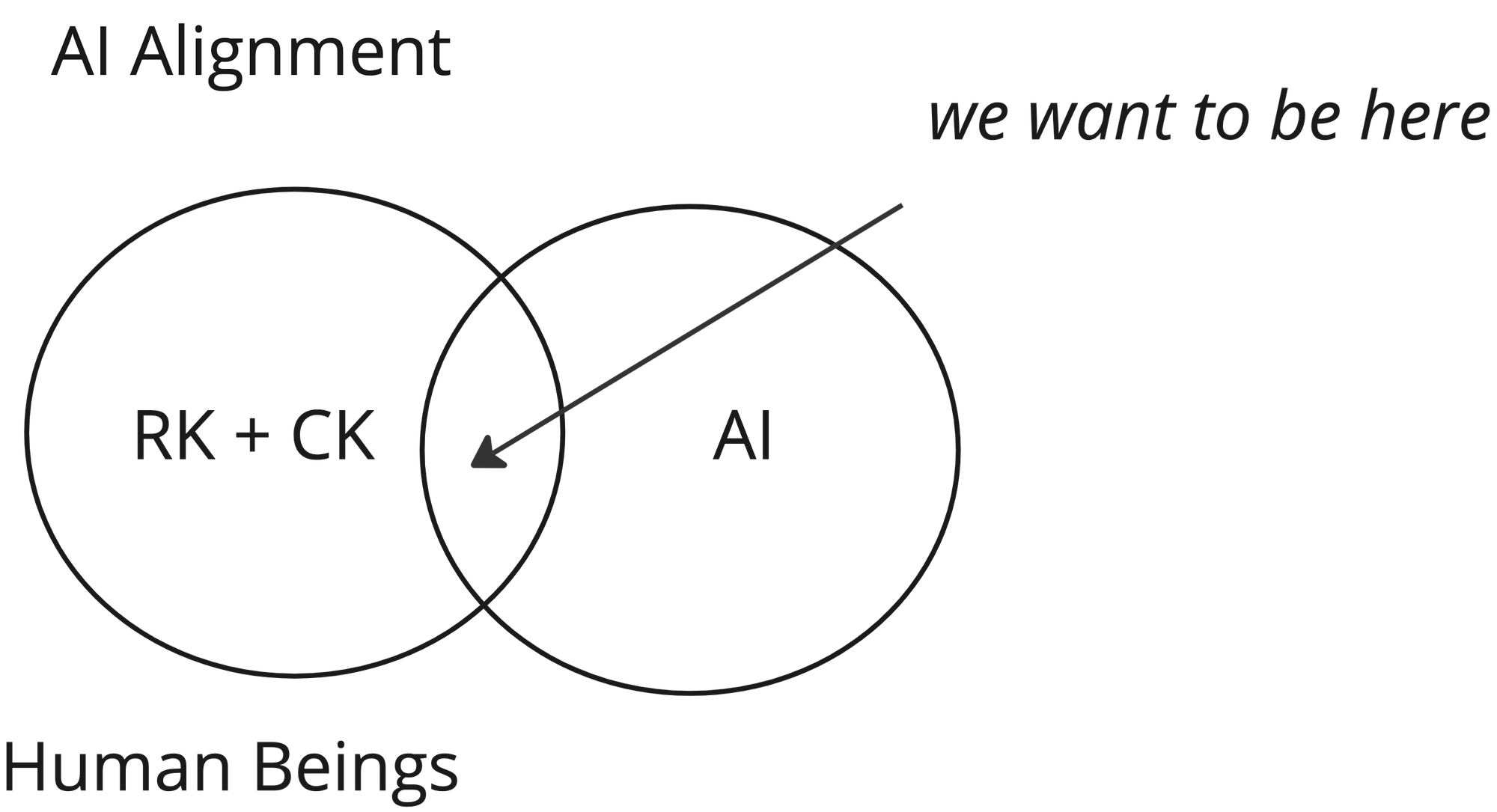
Thank you for making it this far. I'm also experimenting with adding some prompts for self reflection that can help you reflect on your own thinking and perspective on some of the themes raised in the piece.
🧭Explorer Prompts
🤔 self-inquiry prompts to guide a self reflection on life and technology. You can chose to jot down answers in a journal or even have a conversation with a friend. I recommend taking a couple minutes of intentional breathing and solitude before you start answering.
--if AI excels at __, then what does it say about the nature of the task? Is this something that I want to be spending my time on? are there other areas more meaningful to me?
--Who am I beyond the work that I do? Where does the source of my fulfillment and sense of meaning come from?
--What are the ways that technology helps me feel more fulfilled and content and what are the ways it makes me feel more alienated?
The nature of RK is something that cannot truly be understood in words only through experience or direct knowing outside of the mind. The Protocol For Light Forest Explorers guides us through how we may start to feel into RK through Grounding in the Now , Unlearning and Open Mind , and Play .
Thank you for reading,
Dev
